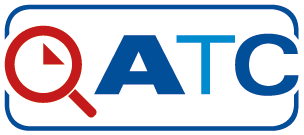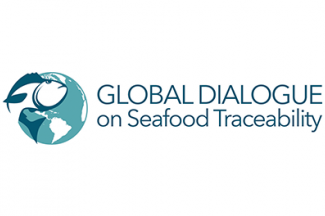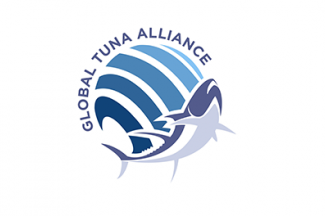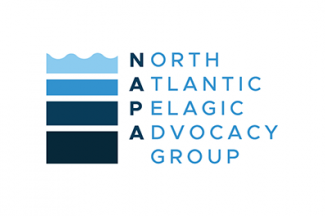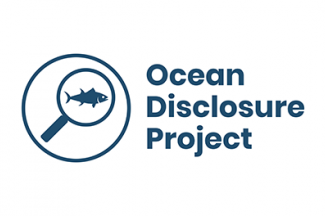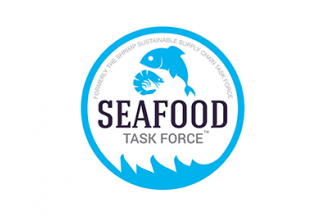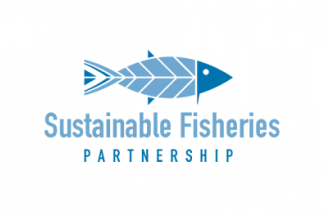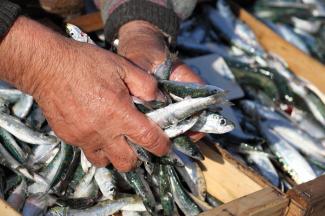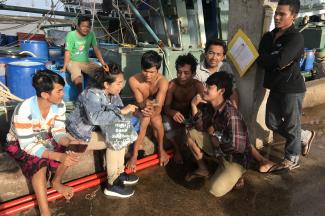
Fish & Seafood
Our Approach
Fish stocks around the world are under increasing strain from overfishing. We are committed to the principles of responsibility and sustainability in the sourcing of our own label fish. We have set ourselves the goal of continuously increasing the share of responsibly sourced products in our fish and seafood range. Our goal is to eliminate overfishing, bycatch and ecosystem damage in our fish and seafood supply chains by 2030.
Our Actions
Transparency & Traceability
We attach great importance to sustainable production conditions in the manufacturing of food and non-food products. Supply chain transparency is the foundation for all our sustainability measures. Without the knowledge where our products come from, we cannot ensure compliance with our requirements, analyse risks, monitor or implement projects. We work with our business partners to increase the transparency of our supply chains so that we have a better understanding of the origins of the products we sell and the raw materials we use in our products.
In 2021, we published the names and addresses of our direct business partners (tier 1 suppliers) for fish & seafood.
As a partner to the Global Dialogue on Seafood Traceability we require our business partners to provide information on the entire value chain of their seafood products, e.g., on catchment area, fishing methods, fishery improvement project (FIP) or aquaculture improvement project (AIP) participation, and other information to support responsible sourcing and continuous improvement.
National traceability platforms
In order to offer their customers a higher transparency for fish and seafood products, ALDI SOUTH Germany and HOFER have established traceability platforms. With the help of a QR code or a tracking code on the packaging, the respective product can be traced back to its origin. In the case of fish, for example, the customer finds out where the purchased fish was caught and processed.
| ALDI SOUTH Germany: Traceability platform | |
|---|---|
|
HOFER: Check your product |
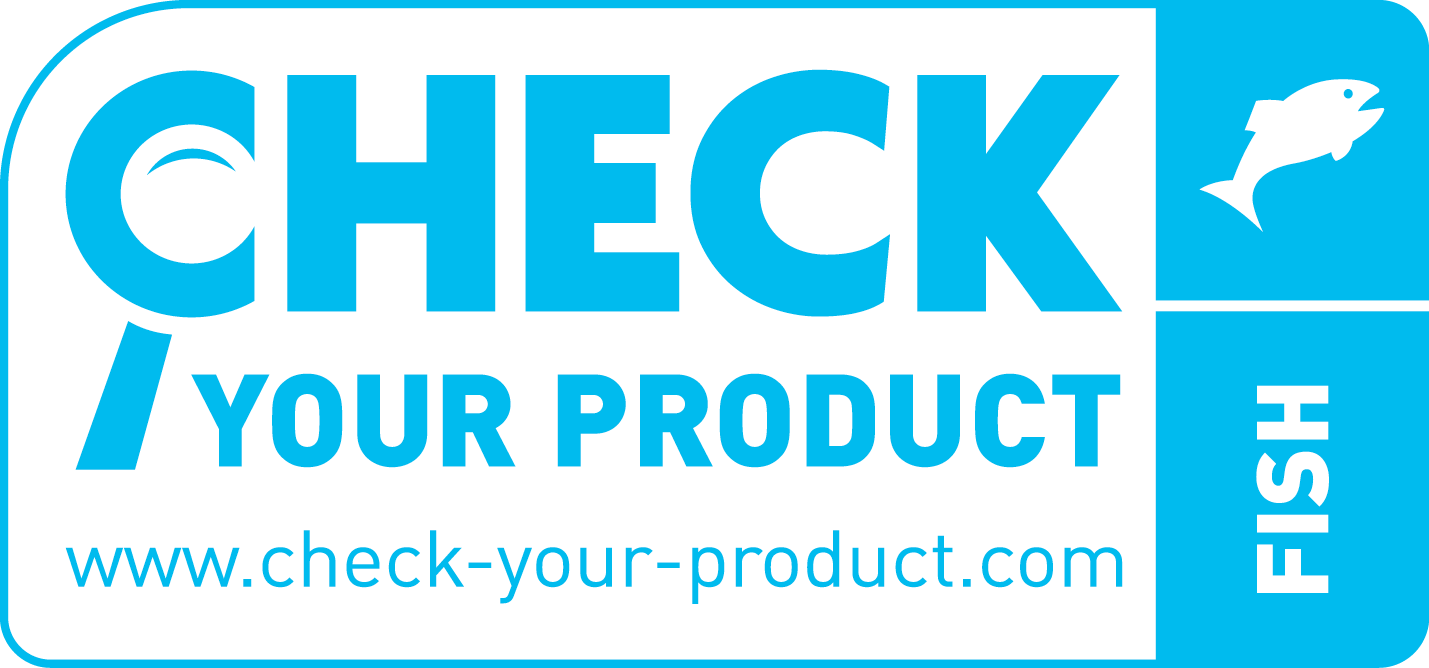 |
Ocean Disclosure Project (ODP)
ALDI UK/IE, ALDI Australia and ALDI US joined the Ocean Disclosure Project (ODP) to voluntarily disclose sourcing information on their wild caught seafood products. The ODP is a global platform and reporting framework dedicated to increasing transparency in global seafood supply chains. These ALDI countries will disclose a list of all the fisheries, catch method and environmental impact of its wild caught seafood.
Certification and Standards
We want to provide our customers the highest quality at the best possible price. To do this, we use systems with proven reliability and suitability for market-wide implementation. The use of independent certification schemes when buying fish is one example. By using these certifications, we can ensure that products in our fish and seafood range are sourced in an environmentally friendly and social manner.
Our minimum criteria for the responsible sourcing of fish:
- Certification in accordance with one of our recognised standards
- Marine Stewardship Council (MSC)
- Aquaculture Stewardship Council (ASC)
- Organic
- GlobalG.A.P.
- Best Aquaculture Practices (BAP) with minimum 2 stars
- Global Sustainable Seafood Initiative (GSSI) recognised standards
- World Wide Fund for Nature (WWF) or Sustainable Fisheries Partnership (SFP) rating, shows a low or medium risk
- The raw material originates from a fishery participating in a Fishery Improvement Project (FIP), registered on fisheryprogress.org, or Aquaculture Improvement Project (AIP), with proven progress.
- Additional tuna criteria: the business partner is a member of the International Seafood Sustainability Foundation (ISSF) or the fishing vessel is registered within the Proactive Vessel Register (PVR).
Additionally to our criteria for responsible sourcing highlighted above, some of our national organisations have even more ambitious targets that they will aim to reach following a step-wise approach.
Responsible Fishing Vessel Standard (RFVS)

The past years have seen increasing awareness of poor working conditions in parts of the seafood industry, in particular in the at sea component of fisheries supply chains. The ALDI SOUTH Group has made it a priority to ensure human rights are being respected in our supply chains. Enforcing and verifying social standards at sea has proven to be a particular challenge, primarily because effective methods are missing.
We have been supporting the development and now piloting of the Responsible Fishing Vessel Standard (RFVS). This voluntary standard is a global fishing vessel-based certification programme, which enables fishing operations to provide assurance of decent working conditions and operational best practice from catch to shore.
Seafish and Global Seafood Alliance (GSA) developed the revised standard in collaboration with the industry. The vessel-based standard is a global certification programme to certify various types of fishing vessels - from large tuna vessels to small coastal operating fishing vessels.
Supply Chain
Business Partner Monitoring
In order to be able to monitor compliance with social and environmental standards and continue to foster these together with our suppliers, we have developed and implemented our Social Monitoring Programme. Audits performed by independent experts, such as amfori BSCI or Sedex, are a key component of the programme. These audits must be carried out before production of our goods may commence.
At the end of 2020, the ALDI SOUTH Group is planning to integrate the high-risk commodity group of fish and seafood on processing level into the Social Monitoring Programme.

Sustainability risk assessment
All fish and seafood products that are not certified undergo a risk assessment to make sure the products do not have a high risk for overfishing or negative impacts on the ecosystem. For this we work together with the Sustainable Fisheries Partnership and the WWF.
When we source a product, the risk assessment is conducted before the buying decision is taken. Once a year, our entire fish and seafood product range is assessed by our partnerships, for any products that might have developed a high risk for overfishing. We will either replace it with a more sustainable alternative or define concrete improvement measures together with our business partners.
Human Rights Risk Assessment

We regularly conduct human rights risk assessments to examine the human rights risks within our food and agriculture supply chains. The aim of these assessments is to identify any adverse impacts our company may have on human rights, gain insights into our actual impacts and understand how we may be involved through our own activities or as a result of our business relationships.
We determined fish and seafood as a raw material with a high risk of adverse impacts on the enjoyment of human rights and consider it most important to the ALDI SOUTH Group.
Stakeholder Dialogue & Capacity Building
We believe the best way to protect the people and the planet is through joint initiatives and partnerships. For this reason, we engage in various multi-stakeholder initiatives and projects on the ground.
Our CR Performance
Our Goal: We will eliminate overfishing, bycatch and ecosystem damage in our fish and seafood supply chains by 2030.
The goal will be achieved by engaging with our suppliers and taking the following steps:
- Products will be either discontinued or moved to responsible sources. For this purpose, improvement plans with relevant suppliers have already been set up.
- Three long term improvement plans have been put in place to achieve MSC certification for relevant herring, mackerel and zander products.
Library
Sustainable Development Goals
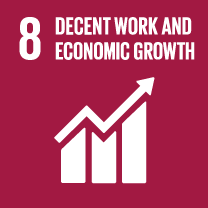
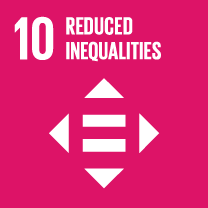
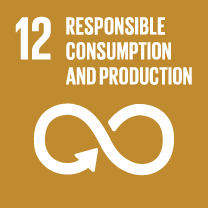
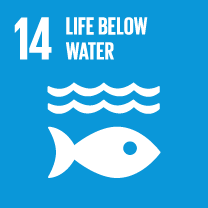
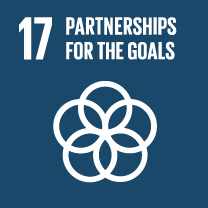
UNGC
Human Rights
Principle 1
Support and respect the protection of human rights
Principle 2
Not complicit in human rights abuses
Labour
Principle 3
Uphold freedom of association and recognition of right to collective bargaining
Principle 4
Elimination of forced and compulsory labour
Principle 5
Abolition of child labour
Principle 6
Elimination of discrimination in respect of employment and occupation
Environment
Principle 7
Precautionary approach to environmental challenges
Principle 8
Promote environmental responsibility
